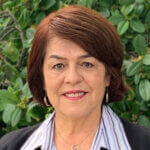A critical foundation of the California Environmental Literacy Initiative’s (CAELI) statement of purpose is the belief that education in, for, and about the environment is not “enrichment”—it is a better way for all students to learn all the time. CAELI, led by Ten Strands and a diverse leadership council, strives to change the education system to ensure that all students at all grade levels, with special emphasis on students of color and low-income students, routinely have outdoor and classroom-based environmental experiences that transform learning and improve physical, emotional, and psychological health and well-being.
To accomplish this bold but very essential, mission-driven purpose, CAELI seeks to provide teachers and administrators with resources and support systems to increase access to impactful environment-based learning for all of California’s TK–12 students. These resources include relevant, real-world, factual, and engaging environmental education experiences with community-based partners (CBPs). These partners possess expertise and experience in environmental and outdoor education with students in multiple settings both in the field and on-site at schools.
Fortunately, there are hundreds of CBPs spread across California that are ready and willing to form partnerships with school districts to offer their programs and services to students and teachers. The CAELI Partner Portal has been designed to support teachers and administrators to easily find the programs that best fit their needs.
How do teachers find out about the community-based partners in their region?
The portal promotes environmental literacy by building educator awareness of CBPs and their products and services and fosters relationships between educators and CBPs for increased student enrichment and engagement. The portal serves as a central directory for CBPs that offer environmental education programs (in-classroom, field-based, overnight, etc.) throughout California. The portal helps foster collaboration, build capacity for educators, and establish consistency in program alignment.
The portal provides a simple way for teachers and administrators to find what their students need. For example, educators can search for organizations by every county in California. They can conduct a search by topic such as:
- agricultural education
- air quality
- career awareness and workforce development
- coastal and marine education
- climate change
- environmental justice
- energy education
- environmental sustainability
- land ecosystems
- pollution prevention
- public health and environment
- sustainable and climate-ready schools
- waste management
- watershed education
CBPs also list their individual program offerings on the portal. This gives teachers a chance to search for very specific types of programs for their students. They can search by academic subject (math, English language arts, science, history, technology, etc.), or they can search by content standards (arts, Common Core State Standards, the Next Generation Science Standards, etc.). Additional search categories include program type (field trip, residential, classroom, expanded learning, virtual, etc.), cost, and duration. Once teachers find several CBPs that fit their specific search criteria, the portal directs them to the organization’s website to find more detailed information.
How do teachers know if the community-based partners (CBPs) offer high-quality experiences?
Every CBP must meet specific criteria to be included on the CAELI Partner Portal. This gives teachers the assurance that CBPs are screened for appropriate content and programming related to advancing environmental literacy. This screening leads to our students’ participating in high-quality programs that will help them build their environmental literacy.
In addition to a CBP search, the portal also maintains microsites from several county offices of education (COE). Currently, over a dozen California COEs have agreed to host microsites and more are coming on board. Microsites showcase locally established environmental literacy partnerships between COEs and CBPs. Each microsite lists a contact person for the COE and links to its web page on environmental literacy. The microsites serve as an additional resource for teachers and administrators to locate CBPs.
For example, the San Mateo COE’s microsite hosts a wide range of resources available to educators in the county including fellowships, events, field trips, recognition programs, and more. San Joaquin COE’s microsite offers links to several networks including youth, teachers, green engagement leaders, and CBPs, as well as professional development opportunities. Orange County Department of Education’s microsite promotes its partnerships through its Inside the Outdoors program.
These features of the portal are intended to support teachers and administrators to locate the CBPs in their region that will best assist them in delivering high-quality programs that will strengthen student environmental literacy.
How can community-based partners (CBPs) get vetted for inclusion in the portal?
In addition to supporting teachers, the CAELI Partner Portal also supports community-based partners in collectively promoting their programs and offerings. At CAELI, we believe that CBPs throughout California are essential for CAELI to achieve its vision of student environmental literacy, and we want to see as many high-quality programs as possible join this ecosystem. If you are a CBP that is not yet on the CAELI Partner Portal, sign up here as soon as possible to begin the onboarding process.
Who is supporting this amazing opportunity for both teachers and CBPs?
This partnership is made possible because of the financial support from the David and Lucile Packard Foundation, the Morgan Family Foundation, and the BelleJAR Foundation. We are grateful to these funders for seeing the value in connecting teachers and students with high-quality environmental education through community-based partners.
If you need assistance joining the CAELI Partner Portal or with your search, contact us at partnerportal@ca-eli.org. Visit the CAELI Partner Portal today!


2 Responses
Community Based Partners are so important! They often hold the place based understanding of local ecosystems and environmental justice issues that is impossible for school systems achieve alone. Thanks, Celeste and the Ten Strands crew for promoting and growing the Partner Portal!
Community Based Partners are so important! They often hold the place based understanding of local ecosystems and environmental justice issues that is impossible for school systems achieve alone. Thanks, Celeste and the Ten Strands crew for promoting and growing the Partner Portal!